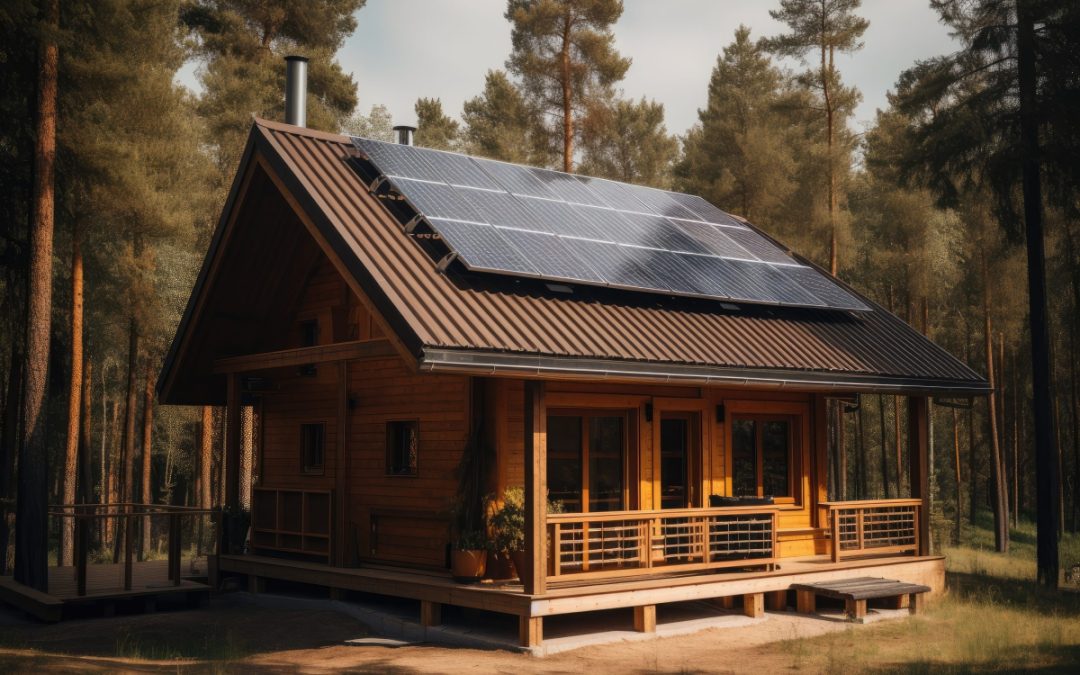Living “Off-Grid” in Pasco, Hillsborough or Pinellas Counties with Solar
To live “off-grid” with a residential solar system in Pasco, Hillsborough, or Pinellas counties in Florida is technically possible, but it may present certain challenges and considerations. Here are some factors to keep in mind:
- Local Regulations: Before setting up an off-grid solar system, it’s important to review the local regulations, building codes, and permit requirements in Pasco, Hillsborough, or Pinellas counties. Local authorities may have specific rules related to solar installations, especially if you plan to disconnect from the grid entirely.
- System Design and Sizing: Off-grid solar systems typically require larger solar arrays and energy storage systems (batteries) to meet your electricity needs when the sun is not shining. Proper system design and sizing are crucial to ensure you have enough power to sustain your home during periods of low solar generation.
- Energy Storage: Batteries are an essential component of an off-grid solar system as they store excess energy generated during the day for use at night or during cloudy days. You’ll need to determine the appropriate battery capacity to meet your energy requirements and consider factors like battery lifespan, maintenance, and replacement costs.
- Energy Consumption: Off-grid living often requires more conscious energy consumption. You may need to adjust your energy usage habits and invest in energy-efficient appliances, lighting, and insulation to reduce your overall energy demand.
- Backup Generator: Depending on your specific requirements, it might be advisable to have a backup generator as a supplemental power source during extended periods of low solar generation or emergencies. A generator can provide additional assurance when the sun is not providing sufficient power.
- Climate Considerations: Florida’s climate is generally favorable for solar energy generation. However, it’s important to consider regional variations in weather patterns, including the potential for hurricanes or severe storms that can impact solar generation. Proper system design and installation, including hurricane-resistant equipment and mounting, should be a priority.
- Maintenance and Monitoring: Off-grid solar systems require regular maintenance and monitoring. You’ll need to ensure that your solar panels, batteries, and other components are functioning optimally. Monitoring tools can help you track energy production, battery levels, and identify any system issues promptly.
It is strongly recommended to consult with local solar installers or energy professionals who have expertise in how to live off-grid in Florida, or in your specific area. They can assess your site, provide guidance on system design, and help navigate the local regulations and permitting process.
Here’s what we know, though:
- Off-grid electricity systems, including solar and wind power, are legal in Florida. There are no laws preventing you from disconnecting from the power company and creating your own “micro-grid.” In almost all cases, you will need to get a permit for your system 1.
- Legally, you can live totally off the grid in Florida with electrical energy. Florida laws encourage the installation of solar panels to obtain clean energy and advise authorities to aid such steps by the public 2.
- The Florida Solar Rights Act forbids ordinances, deed restrictions, covenants, or similar binding agreements from prohibiting solar equipment use 3.
- However, it’s important to note that House Bill 741 was passed by the Florida Legislature, which is set to phase down the rate paid by utilities to rooftop solar owners for excess electricity sent back to the grid. It also opens the door for unlimited fixed fees to be levied on solar customers 4.
- There are no current statewide laws outlawing going off the grid. The legal consequences (or lack thereof) vary on a location-by-location basis. Generally, rural, unincorporated areas are friendlier to off-grid living than larger urban centers 5.
Please note that this summary should not be used as legal advice. Always consult with a local legal expert or authority for advice.

